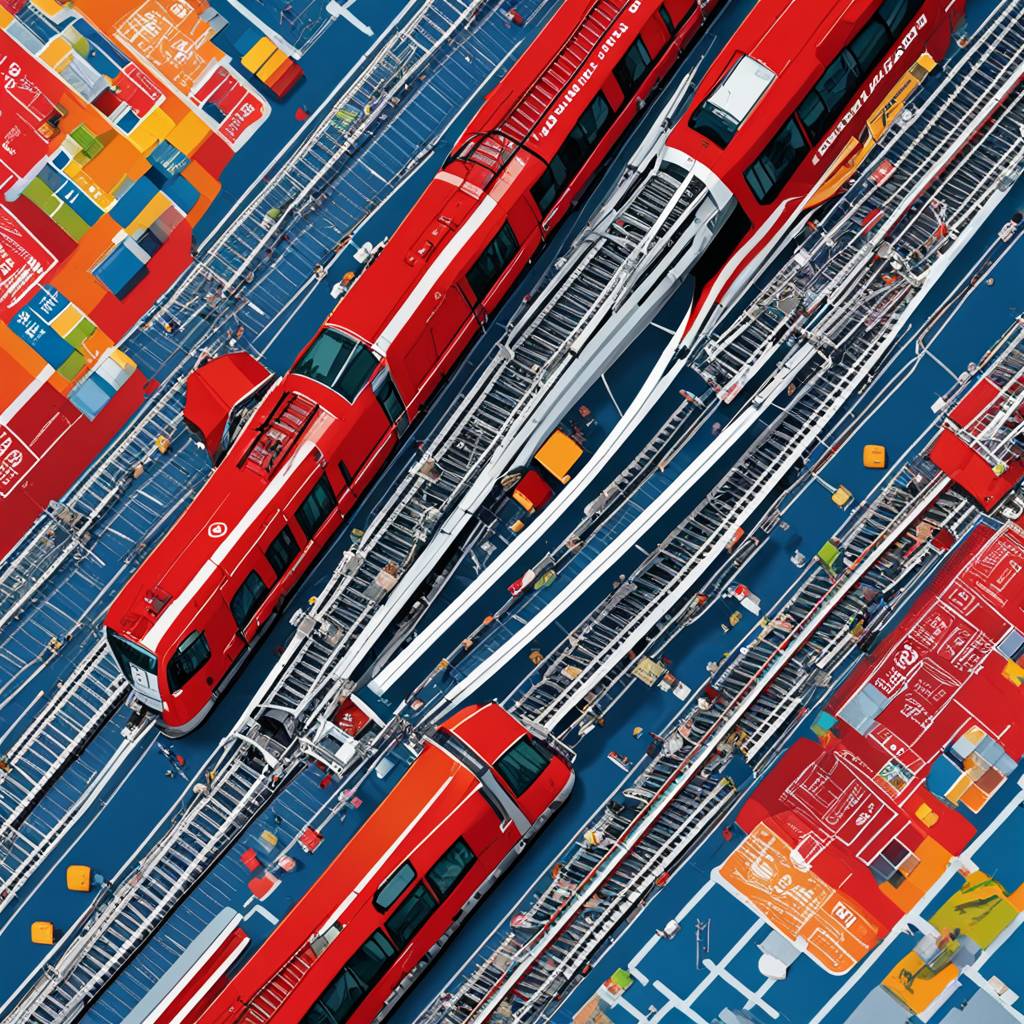Germany’s main railway operator, Deutsche Bahn, and the train drivers’ union, GDL, have reached an agreement after a long dispute over working hours and pay. The details of the deal were not immediately disclosed, but both parties are set to make separate statements on Tuesday. The conflict between the two entities led to multiple strikes by GDL, causing significant disruptions in train services. This disagreement was part of a series of pay disputes in the transportation sector, involving various other groups such as local transport workers, Lufthansa staff, and airport security personnel.
The primary issue at the center of the conflict was GDL’s demand to reduce working hours from 38 to 35 hours per week without a corresponding pay cut. While smaller private operators managing regional services agreed to this demand, Deutsche Bahn initially resisted. The resolution of this matter has not been explicitly outlined and remains unclear. The dispute has been ongoing for several months, and the consistent strikes by train drivers have created challenges for both the railway operator and the union. The impact of the strikes has been felt across the transportation sector, affecting passengers and disrupting travel services.
The conflict between Deutsche Bahn and GDL underscores the broader challenges faced by labor unions and companies in negotiating working conditions and compensation. At the core of the disagreement was the balance between reducing working hours for employees and maintaining fair compensation. This issue has become increasingly significant in light of recent pay disputes in various sectors, highlighting the growing tensions between workers and employers over labor practices. The resolution of the conflict between Deutsche Bahn and GDL may set a precedent for future negotiations within the transportation industry and beyond.
The outcome of the agreement between Deutsche Bahn and GDL is of interest to many observers, as it represents a compromise between the demands of the union and the constraints of the railway operator. By reaching a deal, both parties have potentially averted further disruptions in train services and alleviated some of the tensions that have characterized their relationship in recent months. The impact of this agreement extends beyond the specific terms of the deal, as it may influence future labor negotiations in the transportation sector and contribute to a more stable working environment for employees.
The resolution of the dispute between Deutsche Bahn and GDL may have implications for other labor unions and companies facing similar challenges in negotiating working conditions and compensation. By finding a middle ground on issues related to working hours and pay, the parties involved have demonstrated the potential for constructive dialogue and compromise in addressing labor disputes. This outcome could serve as a model for future negotiations in the transportation sector and other industries, fostering a more collaborative approach to resolving conflicts between workers and employers. The agreement reached between Deutsche Bahn and GDL has the potential to positively impact the broader labor relations landscape in Germany and beyond.
Overall, the agreement reached between Deutsche Bahn and GDL marks a significant development in the resolution of the long-standing dispute over working hours and pay. The compromise between the two parties reflects a willingness to address the concerns of both workers and employers, potentially leading to improved working conditions and a more stable labor environment. The implications of this agreement extend beyond the transportation sector, offering valuable lessons for other industries grappling with labor disputes. By prioritizing dialogue and mutual understanding, Deutsche Bahn and GDL have set a positive example for future negotiations, emphasizing the importance of finding common ground in resolving conflicts between labor unions and companies.


